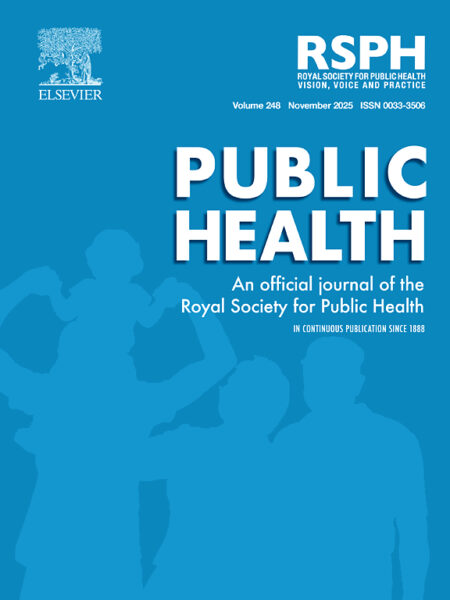Preventable Deaths Tracker
An evidence-based vigilance platform to learn lessons following death investigations
Led by Dr Georgia Richards at King’s College London, the Preventable Deaths Tracker (PDT) is the UK’s first centralised surveillance tool of coroners’ Prevention of Future Deaths reports.
Despite over 113,000 avoidable deaths occurring annually in England and Wales, there is no system to systematically collect, analyse, and learn from these deaths in real-time, until now. The PDT’s tools help identify risks, support learning, drive accountability, and measure progress—but there is more to be done.
Yearly average
From July 2013 to present
441
Mean number of coroners’ Prevention of Future Deaths reports published each year.
0.4%
Percentage of PFDs compared with total avoidable mortality.
Year to date
From January 2026 to present
88
The number of coroners’ Prevention of Future Deaths reports published thus far in 2026.
The Preventable Deaths Tracker’s (PDT) interactive dashboard allows you to filter information by date of report (up to 1 year), 12 coroner areas, five addressees, and one coroner, with options to download and save the outputs, which are safely stored for future use when logged into My Account.
These tools and statistics are free to use, but to help us keep tracking, a small fee (£0.50 per report) is charged for downloading data from the database (min £5 per download). See what the information will look like by downloading a Sample Report, and learn more about supporting us here.
Geography
Reports
From July 2013 to present
6169
Deaths
From July 2013 to present
6716
Published coroners’ Prevention of Future Deaths reports in England & Wales.
Completed
From July 2013 to present
62.0%
Reports with all published responses
Overdue
From July 2013 to present
23.3%
Reports without any published responses
Partial
From July 2013 to present
13.4%
Reports with some, but not all, required responses published
Pending
Due within 56 days of report date
1.3%
Responses due for reports published in last 56 days
Organisations sent reports
From July 2013 to present
2277
Number of individuals or organisations listed as addressees on coroners’ reports
Loss of life cost
From July 2013 to present
£17.6bn
UK Gov – Average appraisal value estimates per death (£ in 2023 prices)
Responses by addressees
Top 30 from July 2013 to present
Response status by year
From July 2013 to present
Responses by area
Top 30 from July 2013 to present
Responses by coroner
Top 30 from July 2013 to present

About the Preventable Deaths Tracker
Our mission is to save lives by enabling learning from avoidable deaths. We build tools, conduct research, and educate the next generation.
Features of the Preventable Deaths Tracker
Making information accessible and usable to save lives
The features and benefits of using the Preventable Deaths Tracker’s tools.
Judiciary website
The Chief Coroner’s Office manually publishes Prevention of Future Deaths (PFDs) reports and their responses as PDF files on the Courts and Tribunals Judiciary website.
Preventable Deaths Tracker
The PDT automatically collects all published PFDs and responses from the Judiciary website, creating a searchable repository of over 13,000 digital files and a relational database that enables real-time statistics, analyses, and more.
Feature
Judiciary website
Preventable Deaths Tracker
Turns narrative information into structured data that’s stored in a relational database


Searchability of all PFDs since 2013


Searchability of all responses to PFDs since 2013


Filter by the date of the reports, not date of publication, providing accurate statistics


Filter by nations, regions and coroner areas


Filter by the name of individual coroners


Standardisation of addressee names to enable filtering by who were sent reports


Removal or merging of duplicate reports to ensure accurate statistics


Real-time insight into trends over time


Real-time tracking of responses to PFDs


Real-time statistics on the number of deaths, not just reports


Real-time statistics on the number of organisations sent PFDs


Real-time statistics on the economic impact of preventable deaths


Maps and data visualisations


Bespoke dashboards & surveillance tools


Ability to download data outputs


Ability to save outputs and re-run filters


Dynamic and specialised experts who can rapidly provide essential statistics, analyses and tools



Research from the Preventable Deaths Tracker
We conduct bespoke analyses and studies using coroners’ reports to identify trends and learning.
Opioids
Deaths reported by coroners involving strong pain medicines published in the Journal of Public Health.

Impact of the Preventable Deaths Tracker
We engage with the justice and healthcare systems, media, and policymakers to improve the death investigation system.
Live on ITV News London
Findings from the report on fatal anaphylaxis and campaign was broadcasted by ITV.
Commissioned article for The Times
Dr Richards was commissioned to write a feature on the work of the Preventable Deaths Tracker for The Times.
Findings from the follow-up Inquiry to the Coroner Service
The Justice Committee featured the PDT’s work and our recommendations in their letter to the Ministry of Justice.

Support the Preventable Deaths Tracker
If you or your organisation can provide sustainable funding for the Preventable Deaths Tracker, please do get in contact.








